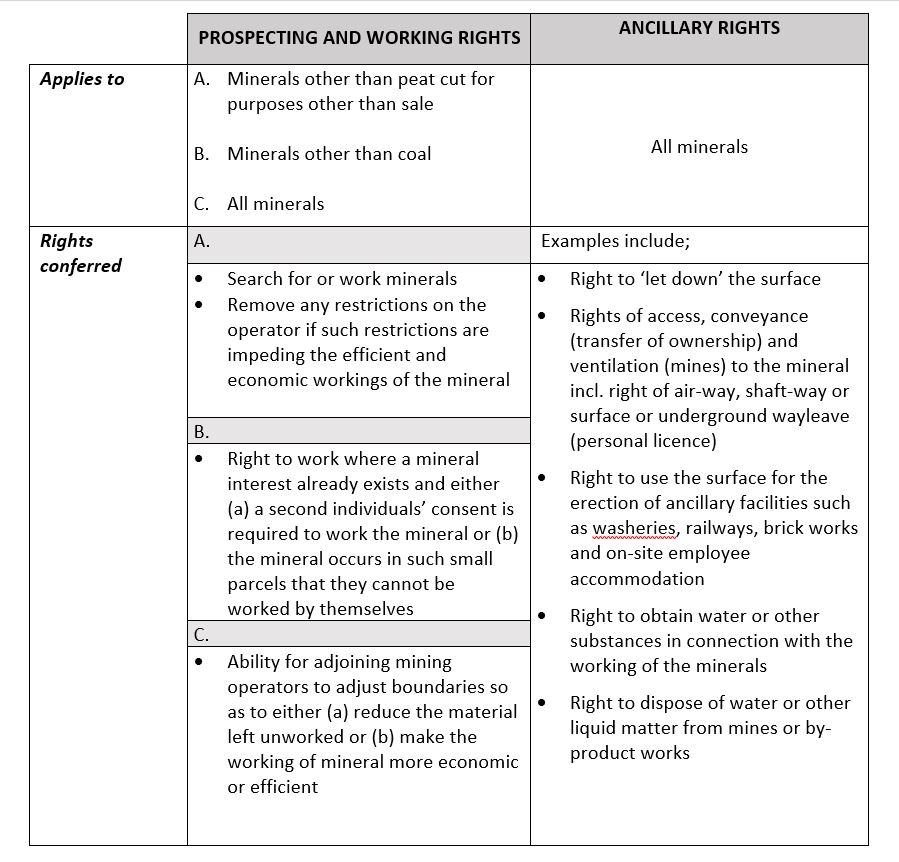
How can mineral operators obtain rights for mineral exploration from uncooperative landowners? There is a little used Act that makes this possible.
The common law presumption is that a landowner owns everything above and below the surface of the land. In terms of mineral rights however, that is not always the case. As Scott Mitchell explains in his article on ownership of mineral rights, these rights can be severed from the land by Crown grant, legislation or historic rights.
Whilst the mineral itself may not be the property of the landowner, the surface land is. How then can a mineral operator access land in order to explore, work or facilitate future or existing mining activities?
The first step should always be contacting and attempting to negotiate access with the landowner. There are instances however where this may not be possible, for example where negotiations break down or the landowner cannot be identified. Cue the Mines (Working Facilities and Supports) Acts 1966 (Mines Act). The Mines Act can grant a third party with no existing rights to that land, “prospecting and working rights” as well as “ancillary rights” for minerals. The process of obtaining these rights is not however straightforward, as this article explores.
Which rights can be granted?
A number of rights can be granted under the Mines Act upon successful application. These are summarised in the table below:

How to obtain the right
The granting of any of the above rights is a question for the High Court. Operators are not able to simply apply directly to the High Court and must comply with the procedural requirements set out within the Mines Act.
Landowner Consent
As referred to above, the first step should always be attempting to contact the relevant landowners as well as those people with a benefitting interest in the land. Not only is this good practice and potentially more cost effective in the long term, but it is also a pre-condition to applying for the statutory rights under the Mines Act.
Application to Secretary of State
An application seeking these rights cannot be made directly in the High Court. It must be referred by the Secretary of State for the Department for Business, Energy & Industrial Strategy (BEIS). (Petroleum Act applications are referred to the Oil and Gas Authority.)
To make the referral BEIS need to be satisfied that there is, on first impression (prima facie), a case made out.
An applicant will therefore need to set out in its application a number of matters for consideration, including, for example:
- Statement of the right sought;
- Evidence that the granting of this right will be in the national interest; and
- Evidence as to why it has not been possible to obtain this right by private arrangement.
On consideration of the application, the BEIS will usually contact any relevant landowners affected by the application. This gives the responding party an opportunity to raise any objections.
Ultimately the BEIS’ role is not to determine whether a right WILL be granted, it is merely to decide whether there is sufficient evidence for this case to be heard. Refusal of the application by the BEIS does not mean that future applications will also be refused.
Referral to High Court
If the BEIS find there is a case to be heard, the matter will be referred to the High Court and papers lodged. This, in effect, starts the clock for very strict deadlines which the applicant must adhere to. These deadlines include:
- Issuing the claim before a Master of the Court;
- Filing of affadavits in support of the application; and
- Preparing an advertisement or notice of the application detailing the nature of the application which may, at the discretion of the Court, be required to be published in local newspapers, local council notice boards etc. so as to allow for objections from members of the public.
An applicant will still be required to prove its case with evidence, before a High Court judge. It is also worth bearing in mind that although the BEIS will have considered there is a case based on previous evidence, this may not be sufficient to persuade a judge. It is therefore not uncommon for further evidence to be adduced. Any evidence called upon in Court may also be subject to cross examination.
The Judge, having considered the evidence and objections will then decide whether or not to grant all (or some) of the rights sought. This decision is entirely at the discretion of the Court. In making its decision, the Court will consider (among other things) whether the granting of these rights is in the expedient in the national interest.
Award
The Court has sole discretion on what (if any) rights to grant, as well as imposing any additional restrictions on those rights. The Court may also (and often does) award some level of compensation to the paid to the landowner(s) as a result of the grant. The amount and payment terms are at the discretion of the Court, however it must always be fair and reasonable.
Costs
The above procedure is not cost friendly. Generally, any costs incurred by either party prior to the issue of proceedings in the High Court are not recoverable by the other party. Once in the High Court however, costs recovery proceeds as in normal litigation i.e. the winning part can (subject to any specific costs orders) claim costs against the losing party.
Conclusion
The value in negotiating suitable access rights directly with a landowner should never be underestimated. Whilst they can often be tricky, these negotiations may in the long run be the more cost effective option to access. As illustrated above, navigating the regulatory framework and successfully obtaining a grant of rights under the Mines Act can be challenging and involves a substantial amount of time and investment. It is therefore important to obtain advice at an early stage.
However, where rights are required and the landowner is not prepared to properly engage, then the Mines Act can provide a useful tool.
The Mining and Minerals team have recent experience of successfully applying to BEIS for rights and successfully objecting in the High Court to the acquisition of rights over land. For further advice please get in touch with the team using the details below.
